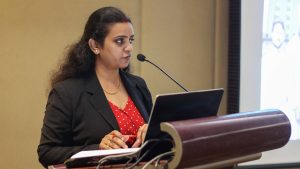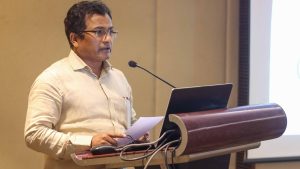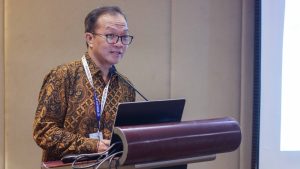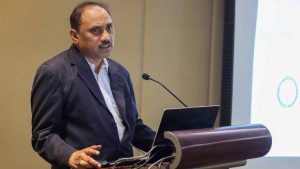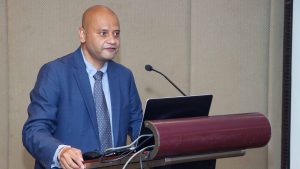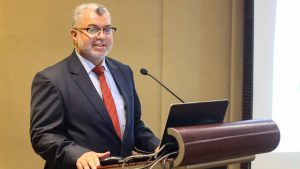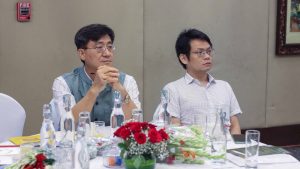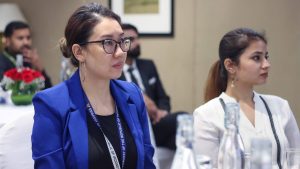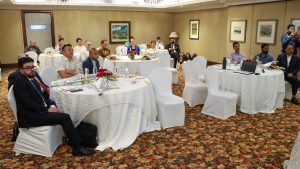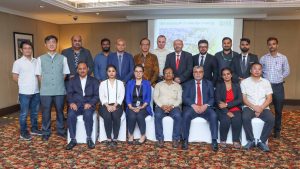SRM-AP All News
ALL News
- Sustainable IoT system for freshwater pearl farming July 26, 2022
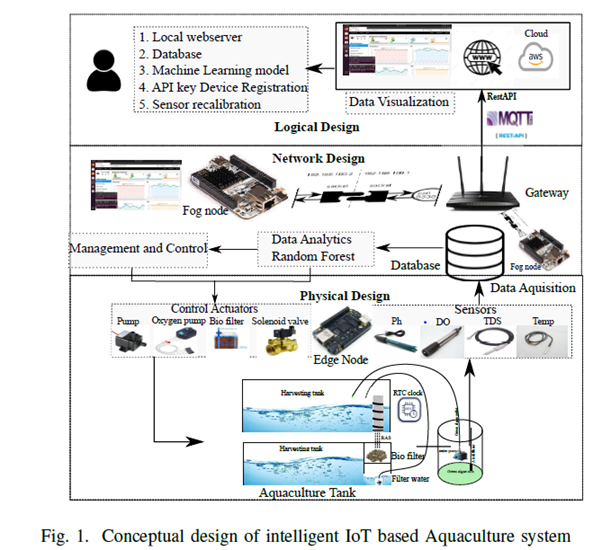
The Department of Computer Science Engineering is glad to announce that Dr Kshira Sagar Sahoo, Assistant Professor, has published an article titled ‘Sustainable IoT Solution for Freshwater Aquaculture Management’ in the Q1 journal, IEEE Sensors, having an Impact Factor of 4.325. The research was published in collaboration with Munesh Singh, from the Department of Computer Science and Engineering, PDPM IIITDM Jabalpur Campus, Madhya Pradesh, and Anand Nayyar, Graduate School, Faculty of Information Technology, Duy Tan University, Vietnam.
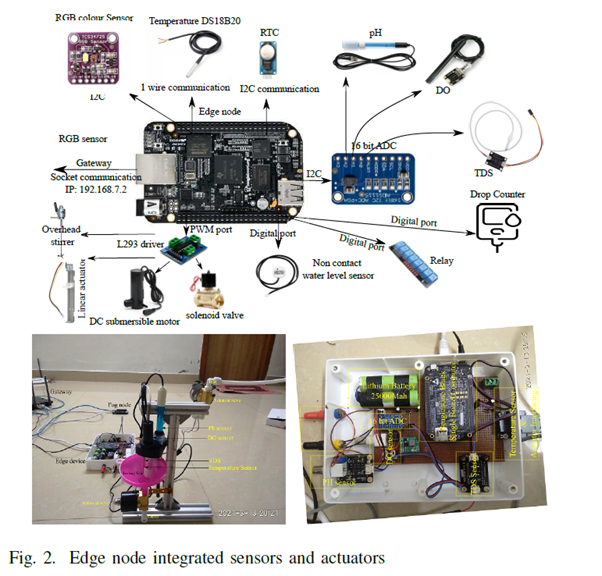 Freshwater pearl farming has the potential to generate an alternative source of income for small farmers. Indian freshwater river bodies have 51 types of species that can produce pearls. Still, India imports 2.4 billion dollars’ worth of pearls from China and Japan. To reduce the import burden on the Indian economy, the government encouraged the farmers to do integrated freshwater pearl farming. Aquaculture-based farming needs a small investment for the initial setup. Although the Indian government promotes aquaculture-based farming through subsidies and free training programs, farmers find it difficult to get success in aquaculture-based farming.
Freshwater pearl farming has the potential to generate an alternative source of income for small farmers. Indian freshwater river bodies have 51 types of species that can produce pearls. Still, India imports 2.4 billion dollars’ worth of pearls from China and Japan. To reduce the import burden on the Indian economy, the government encouraged the farmers to do integrated freshwater pearl farming. Aquaculture-based farming needs a small investment for the initial setup. Although the Indian government promotes aquaculture-based farming through subsidies and free training programs, farmers find it difficult to get success in aquaculture-based farming.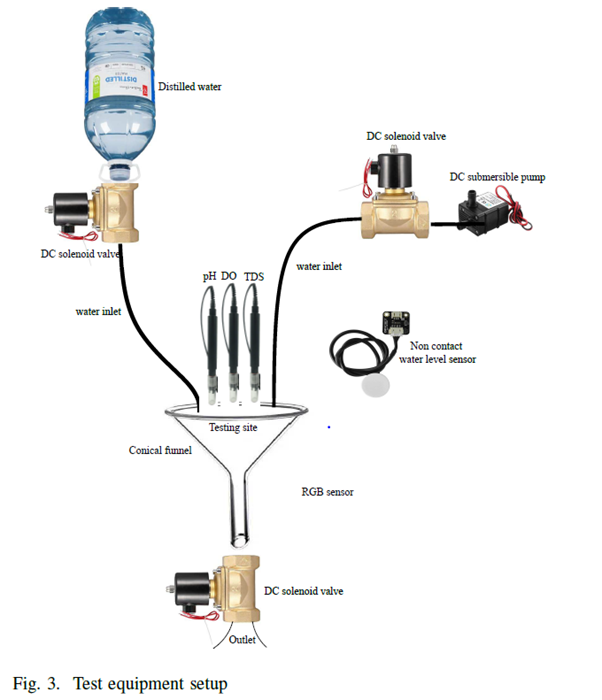 The paper proposes a comprehensive IoT system for freshwater pearl farming which has an intelligent control system for maintaining the aquaculture environment. The proposed system monitors and supports the habitable underwater environments for aquaculture. To train the farmers and educate them in pearl farming business is a time taking and skill-oriented job. The comprehensive IoT system will encourage farmers for freshwater pearl farming and proper utilisation of the government subsidy granted for aqua farming. In future, the researchers will consider more relative water parameters for robust forecast and analyse the best model for predictive analysis.
The paper proposes a comprehensive IoT system for freshwater pearl farming which has an intelligent control system for maintaining the aquaculture environment. The proposed system monitors and supports the habitable underwater environments for aquaculture. To train the farmers and educate them in pearl farming business is a time taking and skill-oriented job. The comprehensive IoT system will encourage farmers for freshwater pearl farming and proper utilisation of the government subsidy granted for aqua farming. In future, the researchers will consider more relative water parameters for robust forecast and analyse the best model for predictive analysis.Abstract of the Research
In recent years, we have seen the impact of global warming on changing weather patterns. The changing weather patterns have shown a significant effect on the annual rainfall. Due to the lack of annual rainfall, developing countries like India have seen a substantial loss in annual crop production. Indian economy largely depends on agro products. To compensate for the economic loss, the Indian government encouraged the farmers to do integrated aquaculture-based farming. Despite government subsidies and training programs, most farmers find it difficult to succeed in aquaculture-based farming. Aquaculture farming needs skills to maintain and monitor underwater environments. The lack of skills for monitoring and maintenance makes the aquaculture business more difficult for farmers. To simplify the pearl farming aquaculture, we have proposed an Internet of Things (IoT)-based intelligent monitoring and maintenance system. The proposed system monitors the water quality and maintains an adequate underwater environment for better production. To maintain an aquaculture environment, we have forecasted the change in water parameters using an ensemble learning method based on random forests (RF). The performance of the RF model was compared with the linear regression (LR), support vector regression (SVR), and gradient boosting machine (GBM). The obtained results show that the RF model outperformed the forecast of the DO with 1.428 mean absolute error (MAE) and pH with 0.141 MAE.
- Pre-existing health conditions and the risk of Covid-19 July 26, 2022
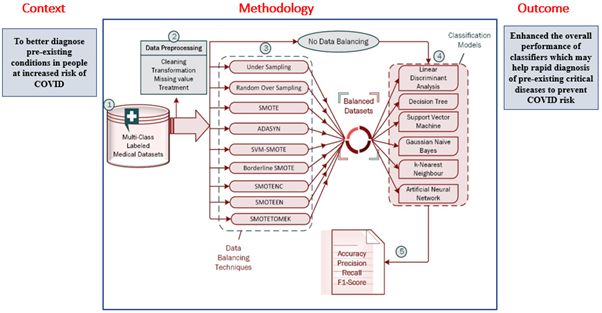 Individuals with pre-existing medical conditions are more vulnerable to Covid-19 and its variants. Patients in countries like India require early testing to diagnose crucial disorders to reduce the risk. Research at the Department of Computer Science and Engineering has come up with a system that automatically identifies and categorises diseases based on the patient’s medical test results. Assistant Professor Dr Ravi Kant Kumar published a paper Improving Performance of Classifiers for Diagnosis of Critical Diseases to Prevent COVID Risk as a co-author in the Q1 journal Computers and Electrical Engineering and has an impact factor of 4.152. With an accurate diagnosis, the required actions can be planned and executed to stop the patients from serious health issues as well as covid risk.
Individuals with pre-existing medical conditions are more vulnerable to Covid-19 and its variants. Patients in countries like India require early testing to diagnose crucial disorders to reduce the risk. Research at the Department of Computer Science and Engineering has come up with a system that automatically identifies and categorises diseases based on the patient’s medical test results. Assistant Professor Dr Ravi Kant Kumar published a paper Improving Performance of Classifiers for Diagnosis of Critical Diseases to Prevent COVID Risk as a co-author in the Q1 journal Computers and Electrical Engineering and has an impact factor of 4.152. With an accurate diagnosis, the required actions can be planned and executed to stop the patients from serious health issues as well as covid risk.Abstract
The risk of developing COVID-19 and its variants may be higher in those with pre-existing health conditions such as thyroid disease, hepatitis C virus (HCV), breast tissue disease, chronic dermatitis, and other severe infections. As a result, early and precise identification of these disorders is critical. A huge number of patients in nations like India require early and rapid testing as a preventative measure. Machine learning methods for automatically identifying and classifying diseases have been created, and they function effectively when the dataset is well specified and balanced at every class level, including “no disease”. The problem of imbalance arises from the skewed nature of data, in which a large number of cases belonging to one class (known as the majority class) are classified correct, while the other class (known as the minority class) has lesser instances; is unfortunately misclassified by many classifiers. When it comes to human life, this kind of misclassification is unacceptable. To solve the misclassification issue and improve accuracy in such datasets, we applied a variety of data balancing techniques to several machine learning algorithms. The outcomes are encouraging, with a considerable increase in accuracy. As an outcome of these proper diagnoses, we can make plans and take the required actions to stop patients from acquiring serious health issues or viral infections.
Explanation of the research
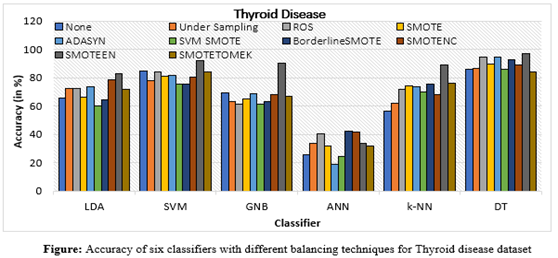 Lethal COVID-19 and its mutant forms may be more likely to arise in patients with pre-existing medical conditions such as thyroid illness, hepatitis C virus (HCV), breast tissue disease, chronic dermatitis, compromised immune systems, obesity, diabetes, heart disease, cancer, etc. For patients, an early and accurate diagnosis of these illnesses is crucial. Based on patient data, machine learning algorithms can assist in the early and quick detection of numerous diseases in a huge population like India. On the other side, machine learning algorithms perform poorly when a dataset has a class unbalanced problem. As a result, we used a variety of smote and its variants in this study to address the problems about the imbalanced class size. The experimental work showed that all six classifiers (DT, SVM, LDA, k-NN, GNB, and ANN) performed better overall on clinical datasets when class balancing strategies and classification techniques were combined. It recommends the use of the recommended classifications and class balancing technique with regard to specific data to identify the disease accurately and automatically
Lethal COVID-19 and its mutant forms may be more likely to arise in patients with pre-existing medical conditions such as thyroid illness, hepatitis C virus (HCV), breast tissue disease, chronic dermatitis, compromised immune systems, obesity, diabetes, heart disease, cancer, etc. For patients, an early and accurate diagnosis of these illnesses is crucial. Based on patient data, machine learning algorithms can assist in the early and quick detection of numerous diseases in a huge population like India. On the other side, machine learning algorithms perform poorly when a dataset has a class unbalanced problem. As a result, we used a variety of smote and its variants in this study to address the problems about the imbalanced class size. The experimental work showed that all six classifiers (DT, SVM, LDA, k-NN, GNB, and ANN) performed better overall on clinical datasets when class balancing strategies and classification techniques were combined. It recommends the use of the recommended classifications and class balancing technique with regard to specific data to identify the disease accurately and automaticallyFor this work, Dr Ravi Kant Kumar has collaborated with Mr Vinod Kumar, Koneru Lakshmaiah Education Foundation, Vaddeswaram,India, and Mr Gotam Singh Lalotra, University of Jammu, India. Their future research will investigate and design the most effective multi-class balancing method to address the multi-class imbalance problem in medical data.
Continue reading → - IUP publications features an interview with Prof Bandi Kamaiah July 25, 2022
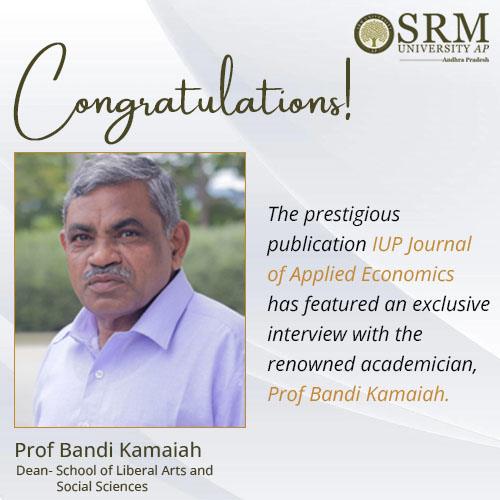
‘An interview with Professor Bandi Kamaiah’ was featured in the leading publication, IUP Journal of Applied Economics. Analysing the issues of Micro, Macro, Development and Energy economics, the journal features papers on Industrial economics, Public finance, Industry, Agricultural, Rural economics, etc. Having published interviews with eminent Professors like Professor K L Krishna, Professor Dilip Nachane, Professor U Sankar, Professor S Mahendra Dev, and Professor Ashima Goyal, the dialogue with Prof Bandi Kamaiah is the sixth in the series.
In the interview with Prof Bandi Kamaiah, Department of Economics, SRM University-AP, GRK Murty narrates the transformational journey of Prof Kamaiah from the son of a tenant farmer to an estimable researcher who went on to occupy the position of the President of ‘The Indian Econometric Society’ (TIES). The interview presents an enriching account of the veteran’s life who crossed innumerable hurdles to nurture his passion and became an ‘agent of change’ in the lives of several hundreds of first-generation students from the margins of society, by shaping them into accomplished professionals.
The evocative dialogue with Prof Kamaiah extends an open doorway to several inspiring phases of his life that modelled him into a “towering intellectual” and “outstanding teacher”. His collaboration with pre-eminent economists like Prof P R Bramhananda, Prof Dilip Nachane, and Prof C Rangarajan motivated him to build a career in monetary economics. He has successfully guided 50 PhDs and an equal number of MPhil dissertations from almost every facet of economics and published more than 160 papers in national and international journals.
The interview explicates his association with various institutes of prestige including the National Institute of Bank Management (NIBM), Indira Gandhi Institute of Development Research (IGIDR) and the University of Hyderabad. As the founding father of the School of Economics at the University of Hyderabad, he has also introduced a two-year employment-enhancing master’s program in Financial Economics. His amicable and free-spirited approach made him one of the most sought-after teachers among the student community. He has a unique way of nurturing students and guiding them through the process of academic research.
Prof Kamaiah also articulates his views on the economic landscape of the country, the possible impact of its monetary and fiscal policies in the post-pandemic scenario, the growing correlation between the domestic and global stock markets, and the deepening relationship between energy consumption, real GDP, CO2 emissions, and such other climate-related issues. Airing his concerns about the outmoded syllabus and stagnant curriculum, he reiterates the need to renovate university education, hopefully, through the framework created by NEP 2020. He believes, creating specialised institutions would be a better way to train professionals who would become market ready and employable.
In his opinion, ‘Centres of Economic Excellence’ in different regions of the country will give rise to a strong pool of economists well-trained within the country to meaningfully replace the imported economists from the West to render advice on crucial matters. “The young minds of the country should be exposed to indigenous ways of thinking, and holistically trained to appreciate our culture, resources and institutions, systems and customs, ways of living, etc. to understand local markets, expose the basis of vulgar consumerism, the beauty of self-regulation without the aid of Adam Smith’s invisible hand, and social realism in contrast to self-interest”, said Prof Kamaiah.
- SRM University-AP collaborates with Taurean Surgical July 22, 2022
 Introducing students to cutting-edge technologies and acquainting them with the latest industry practices help encourage their competitive skills. SRM University-AP has inked an MoU with Taurean Surgical in July 2022 for a promising collaboration. Taurean Surgical has solid expertise in surgical robots, next-generation visualisation for surgical robots, ergonomic surgical robot platforms, augmented reality, and precision image guidance systems. Free webinars, summer internships, skill-building projects, on-campus internships, and job offers are the key highlights of this collaboration.
Introducing students to cutting-edge technologies and acquainting them with the latest industry practices help encourage their competitive skills. SRM University-AP has inked an MoU with Taurean Surgical in July 2022 for a promising collaboration. Taurean Surgical has solid expertise in surgical robots, next-generation visualisation for surgical robots, ergonomic surgical robot platforms, augmented reality, and precision image guidance systems. Free webinars, summer internships, skill-building projects, on-campus internships, and job offers are the key highlights of this collaboration.SRM University-AP students can attend free webinars on Surgical Robot Technology and similar topics. Taurean Surgical offers full-time summer internships on industry-oriented projects to BTech and MTech programmes students. They also propose a series of skill-building projects based on industry works. Real-life industry problems are the foundation of the projects. These projects target students who pursue BTech and MTech degrees. They will work under the combined guidance of the faculty of SRM university-AP and the experienced professionals of Taurean Surgical.
On-campus internships are another attraction of this collaboration. This will benefit the students who excel in their project performance. The company may consider giving job offers to the brightest students by evaluating their project performance. They are also open to research collaborations with the faculty of SRM University-AP from any department based on the common topics of interest.
Continue reading → - SRM AP and AIIMS Mangalagiri share healthcare research of mutual interest July 21, 2022
 AIIMS Mangalagiri, one of the premier healthcare institutes of National importance, has agreed in principle to collaborate with SRM University-AP to carry out joint research programs of mutual interest in health care. Doctors from AIIMS Mangalagiri and faculty members of SRM University-AP had a joint meeting held at AIIMS Mangalagiri on Wednesday evening.
AIIMS Mangalagiri, one of the premier healthcare institutes of National importance, has agreed in principle to collaborate with SRM University-AP to carry out joint research programs of mutual interest in health care. Doctors from AIIMS Mangalagiri and faculty members of SRM University-AP had a joint meeting held at AIIMS Mangalagiri on Wednesday evening.Pro Vice Chancellor of SRM University-AP, Prof D Narayana Rao, expressed the significance of AIIMS Mangalagiri’s collaboration in the proposed research projects, outreach programmes, and patent inventions undertaken by SRM university-AP during the last three years. Dr C H Lakshmi Rajyam, Medical Officer of SRM University-AP, requested the support of AIIMS-Mangalagiri to provide medical and health services to the university faculty, staff and students.
Director of AIIMS Mangalagiri, Dr Mukesh Tripathi, agreed in principle to these proposals. He opined that AIIMS would visit SRM University-AP on July 26, 2022, and expressed his interest in inking an MoU. Dr K A Sunita, Prof G S Vinod Kumar, Prof Prakash Jadhav, Dr S Mannathan, Dr Pradyut Kumar Sanki and other faculty from SRM University-AP gave a PowerPoint presentation about the proposed research projects. Dr Mukesh Tripathi, Dr Joy A Ghoshal, Dr Deepti, and Dr Vamsi Prabhrutlu of AIIMS Mangalagiri took part in the meeting.
Continue reading → - Decoding the problematic narratives in mainstream Queer cinema July 19, 2022
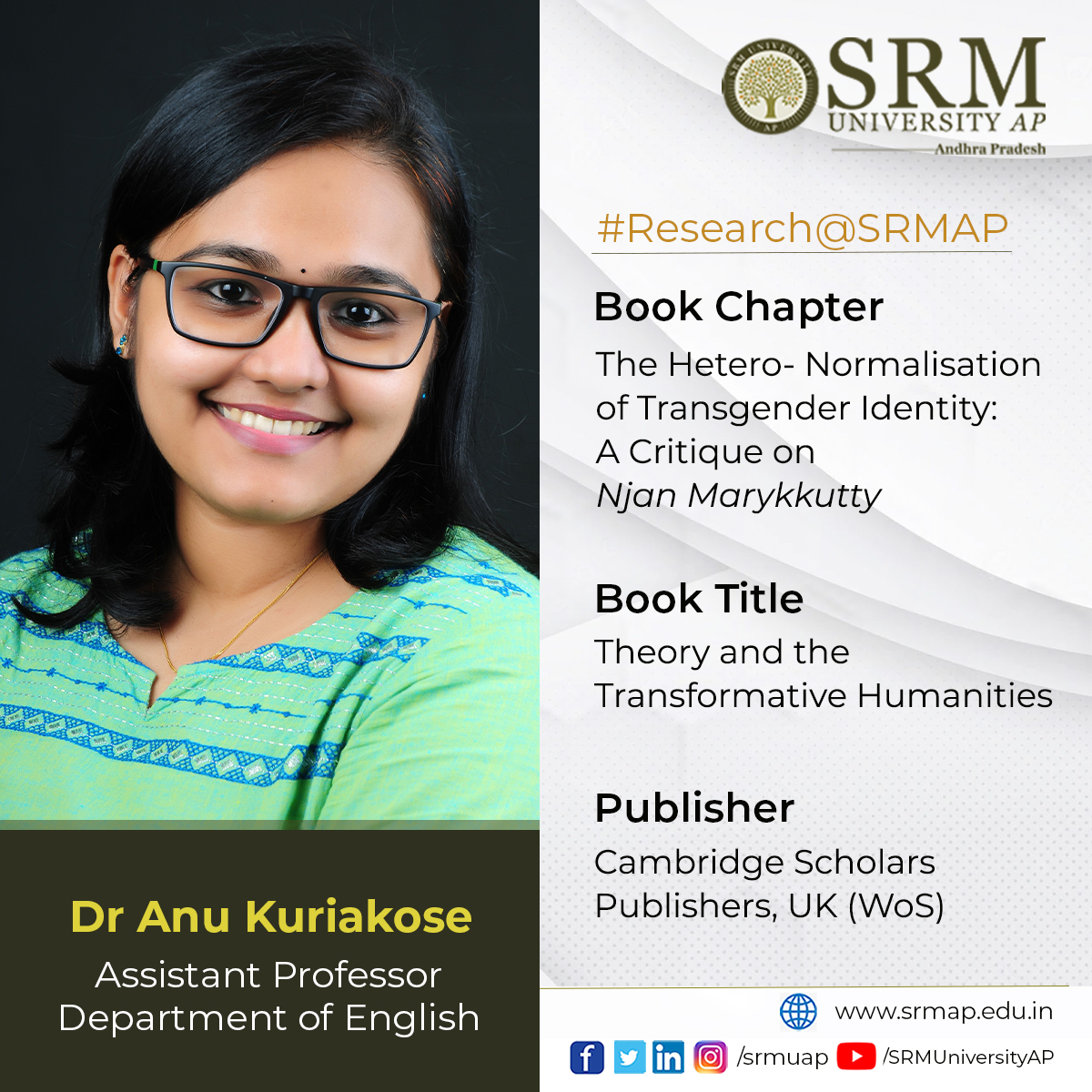 The trajectory of trans representation in cinema is essentially critical since the predominant viewers belong to the heteronormative cisgender public. Visual media played a massive role in inculcating the idea of gender identity into the preconditioned entity of heteronormativity. The skill and sympathy of the filmmaker in handling trans issues hold a significant chunk of this representational politics.
The trajectory of trans representation in cinema is essentially critical since the predominant viewers belong to the heteronormative cisgender public. Visual media played a massive role in inculcating the idea of gender identity into the preconditioned entity of heteronormativity. The skill and sympathy of the filmmaker in handling trans issues hold a significant chunk of this representational politics.The popular media in Kerala has reconfigured its space to include people with gender non-conforming identities and sexual orientation as a matter of concern in contemporary times. However, there are times when the filmmakers fail to understand the assignment. The new research chapter of Assistant Professor Dr Anu Kuriakose, Department of English, articulates the discomfort of seeing the misrepresentation of transgender identity in mainstream cinema. The chapter titled The Hetero- Normalisation of Transgender Identity: A Critique on Njan Marykkutty was published by Cambridge Scholars Publishers, UK (WoS) and belongs to the book Theory and the Transformative Humanities.
Problems that face the humanities discipline today have sparked an intense debate across the globe. The Theory of the transformative humanities envisions a domain of inquiry that attempts to transform cultures, individuals, and society. This volume explores different theoretical perspectives and practical orientations through which to perceive, innovate and transform the world in which we live. It opens diverse fields of thinking and research. It offers a broader perspective on how a critical-literary approach could be deployed in addressing the multidimensional and evolutionary nature of the humanities in a way that caters to the needs of the present. A compilation of scholarly essays on topics as diverse as post-millennial theory, trans-humanities, posthumanism, interdisciplinarity, psychoanalysis, and film studies, the book provides an enabling platform for intellectuals, research scholars, and experts in the humanities to tap into the transformative potential of the field.
This chapter critically examines the representational politics of the central transgender character Marykkutty in the 2018 Malayalam film Njan Marykutty. The release of this film marked an unprecedented debate on transgender identity in Kerala’s public sphere, more specifically, about transwomen’s visibility in the public sphere. This is quite significant, as it has been a moment of the culmination of various activist, academic, and governmental interventions in the state attempt to mainstream the trans identity from the margins of society. She has used visual and thematic analysis as a method to critically look at the visualization of a trans feminine body in this film. The chapter analyses the trans identity in terms of Judith Butler’s theory of gender performativity, Julia Kristeva’s ‘abject,’ and Jacques Lacan’s notion of ‘object petit a’ or object of desire. It is argued that the excess in normalisation of the transgender body ironically endorses the heterosexual values of the binary gender performance when the surgically re-appropriated body is celebrated, clapped on the big screen, and sensationalised as an achievement when the central character themselves voices, “I am not a transgender, I am a transsexual.”
Heteronormativity safeguards the normalisation of heterosexuality through myriad practices so as to concrete the notion of a legitimate form of sexuality. Dr Anu Kuriakose attempts to denaturalise and denormalise the excessive lauding of heterosexuality in cinema to open up a less distorted corridor to queer desires and identity.
Continue reading → - Project Sanctioned by Indian National Science Academy July 18, 2022
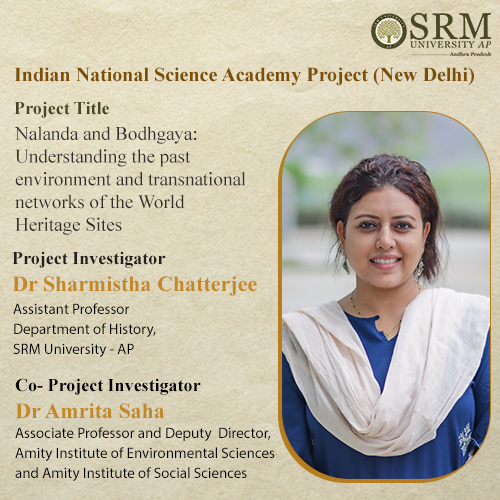
Yet another moment of pride and honour for SRM University-AP as the Indian National Science Academy (INSA, New Delhi) has sanctioned the Project “Nalanda and Bodhgaya: Understanding the past environment and transnational networks of the World Heritage Sites” to Dr Sharmishtha Chatterjee, Assistant Professor, Department of History with a total outlay of Rs 5 lakhs. The co-investigator of the project is Dr Amrita Saha, Associate Professor and Deputy Director, Amity Institute of Environmental Sciences and Amity Institute of Social Sciences, Amity University, Kolkata. The project is a pioneering initiative to make a comprehensive study of the landscape and environmental factors (physical and cultural) governing the Buddhist World Heritage Sites of Nalanda and Bodhgaya (Bihar, India).
One of the first attempts in South Asia to understand monasteries and monastic complexes in relation to the landscape parameters, the work is distinctive in its scope and methodology because of its multidisciplinary approach involving archaeology, history, and environmental science. It aims for a holistic understanding of the sites and the region. Bodhgaya and Nalanda are two major Buddhist sites of India, the first marking the site of enlightenment of Gautama Buddha and the other being one of the oldest educational institutes of ancient times. Both the sites have been witnessing travellers, pilgrims, students, and religious preachers from the farthest corners of the world.
The foremost objective is to investigate the environmental settings (location, settlement geography, palaeolandscape features, layout of the monastic complexes, dietary patterns) of the monastic sites. This will be executed through the generation of a series of maps by superimposing colonial site plans, old maps, satellite imageries and corroboration of the same with extensive field surveys. The scientific study of the topographic delineations, soil samples, and artefactual evidences would be undertaken in the course of the study.
These attempts would generate a detailed study of the regular lives in the two monastic complexes along with the social and cultural ties established with the lesser-known monasteries and villages of the hinterland area. The project also seeks to explore the local, national, and transnational networks emanating from the sites, thus contributing to a global networking. The project is expected to create frameworks for extending the study to the other monastic complexes across South and Southeast Asia. In the long run the work will be published in the form of an annotated atlas featuring the monastic complexes, the wider geographical hinterland, and the transnational networks between India and Southeast Asia. This would serve as one of the noteworthy contributions that puts forth a holistic study of the cultural landscapes of the World Heritage Sites.
- Towards power quality improvement July 18, 2022
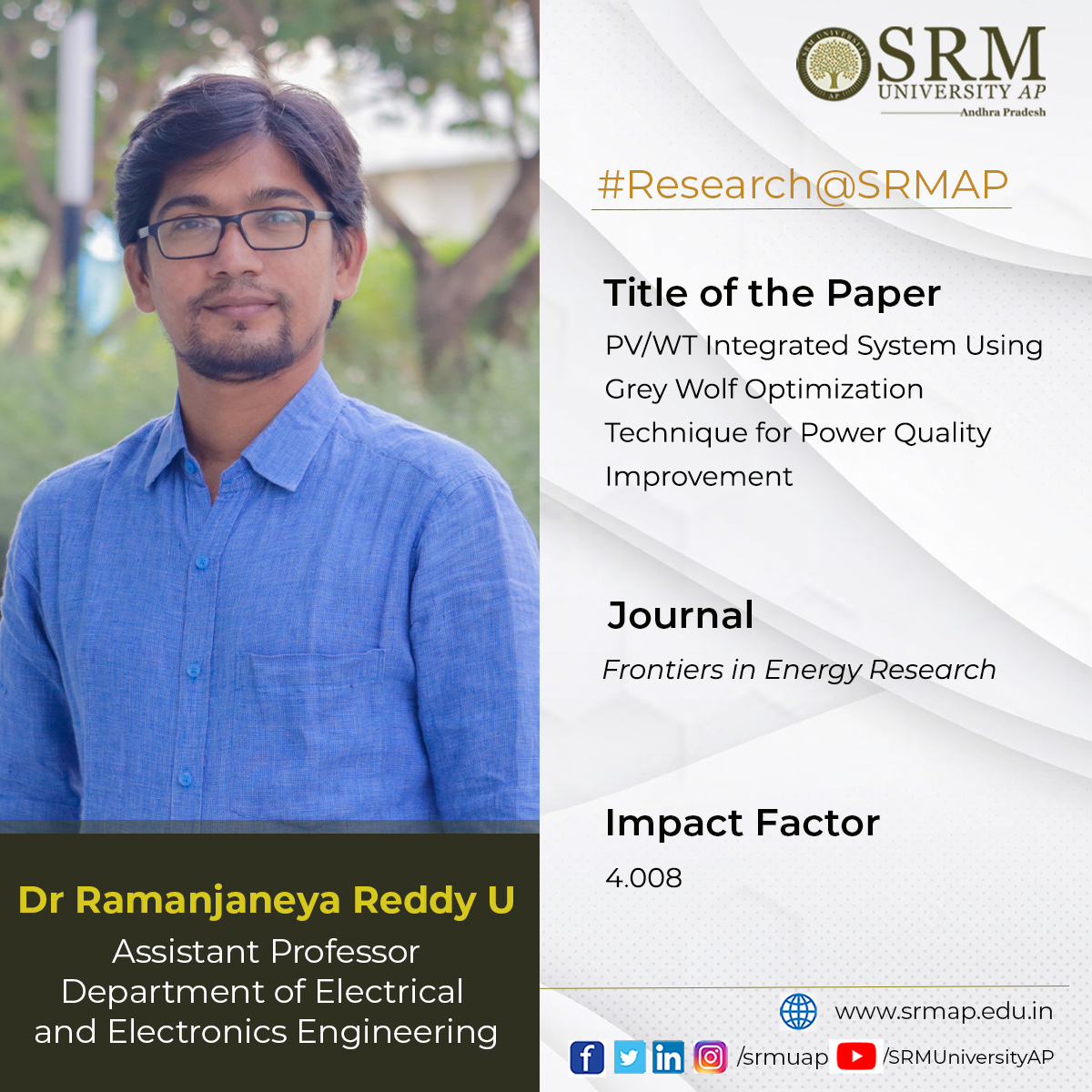 In future, there is a lot of scope for enhancing the power quality using various controllers whose gains are obtained using different optimisation techniques to mitigate several issues. Assistant Professor Dr Ramanjaneya Reddy, Department of Electrical and Electronics Engineering, envisions this tomorrow through his new research paper PV/WT Integrated System Using Grey Wolf Optimization Technique for Power Quality Improvement. The paper is published in the Process, and Energy Systems Engineering section of the Frontiers in Energy Research journal and has an impact factor 4.008. For this research paper, he has collaborated with Assistant Professor Srikanth Goud, Anurag College of Engineering Ghatkesar, Telangana.
In future, there is a lot of scope for enhancing the power quality using various controllers whose gains are obtained using different optimisation techniques to mitigate several issues. Assistant Professor Dr Ramanjaneya Reddy, Department of Electrical and Electronics Engineering, envisions this tomorrow through his new research paper PV/WT Integrated System Using Grey Wolf Optimization Technique for Power Quality Improvement. The paper is published in the Process, and Energy Systems Engineering section of the Frontiers in Energy Research journal and has an impact factor 4.008. For this research paper, he has collaborated with Assistant Professor Srikanth Goud, Anurag College of Engineering Ghatkesar, Telangana.Abstract
This work presents the integration of renewable energy sources such as PV and wind into the grid. Hybrid shunt active power filter (HSHAPF) is optimised with the grey wolf optimisation (GWO) and fractional order proportional integral controller (FOPI) for harmonic reduction under non-linear and unbalanced load conditions. With the use of GWO, the parameters of FOPI are tuned, effectively minimising the harmonics. The proposed model has effectively compensated the total harmonic distortions (THD) when compared with filter, without filter, with passive filter, active power filter with PI controller, and GWO- FOPI-based controller. The performance of the proposed controller is tested under non-linear and unbalanced conditions. The parameters of the FOPI controller are better tuned with the GWO technique. The comparative results reflect the best results of GWO-FOPI based HSHAPF. The suggested controller is built in the MATLAB/Simulink Platform.
Explanation of the research
Power quality (PQ) problems in the distribution system occur when non-linear loads are used. With the development in semiconductor technology, the modelling and usage of power electronic devices are increasing on the end-user side. Because of the usage of power, electronic devices give rise to many problems like a disturbance in reactive power, poor power factor, harmonic distortion, etc. These problems cause severe effects on the distribution system, which results in PQ issues. To mitigate PQ issues, there are many controlling techniques that ensure harmonic free. Initially, passive filter usage was widely considered for harmonic elimination and reactive power compensation. Due to various remarkable disadvantages like constant compensation performance, large size, resonance, etc., the usage became less. To mitigate the reactive power compensation and harmonics, active power filters (APF) became more prominent as the performance characteristics are very effective compared to conventional filters. APF is the device that generally produces an equal quantity of harmonics when compared with the load with a phase shift of 1800. These harmonics are injected into the linear PCC, load current harmonics mitigate, and supply becomes sinusoidal. The active power filters are broadly classified as series APF and shunt APF. The basic structure of shunt APF is illustrated in Figure.1, which mitigates the load current harmonics by inserting equal but opposite harmonic compensating current. Several authors have conducted research on grid integration using RES, active power filters, PQ issues, and various types of controllers designed to mitigate in the hybrid integrated system. In this work, THD reduction under non-linear load, unbalanced load without filter, with passive filter, with active power filter using a PI controller, and the proposed controller is introduced, which results in the best reduction of harmonics under various load conditions.
Practical implementation of the research
The proposed system is designed using both passive and active filters. The designed model improves the filer’s compensation characteristics, reducing the disadvantages of both active and passive filters. In this proposed work, HSHAPF is implemented with the combination of LC passive filter and voltage source PWM converter illustrated in Figure. 2, which illustrates the RES and HSHAPF connected to the grid. This design is tested at various loads, such as non-linear loads and unbalanced loads. Both filters’ characteristics are designed to provide the best performance under different operating conditions. To filter out the harmonics, the designed structure is modelled with storage systems using the battery, DC link and switches with antiparallel diodes. At PCC compensating current is injected using a voltage source converter to mitigate the harmonics. To overcome the power rating required for the PWM converter, the system is modelled using both active as well as passive filters to mitigate the harmonics. Here power MOSFETs are used in designing the PWM converters, which is cost-effective. To eliminate the harmonic at the PCC, equal and opposite magnitude harmonic current has to be injected, which also improves the PQ in the distribution system.
- OMACS: the start-up initiative of Dr Udaya Shankar July 18, 2022
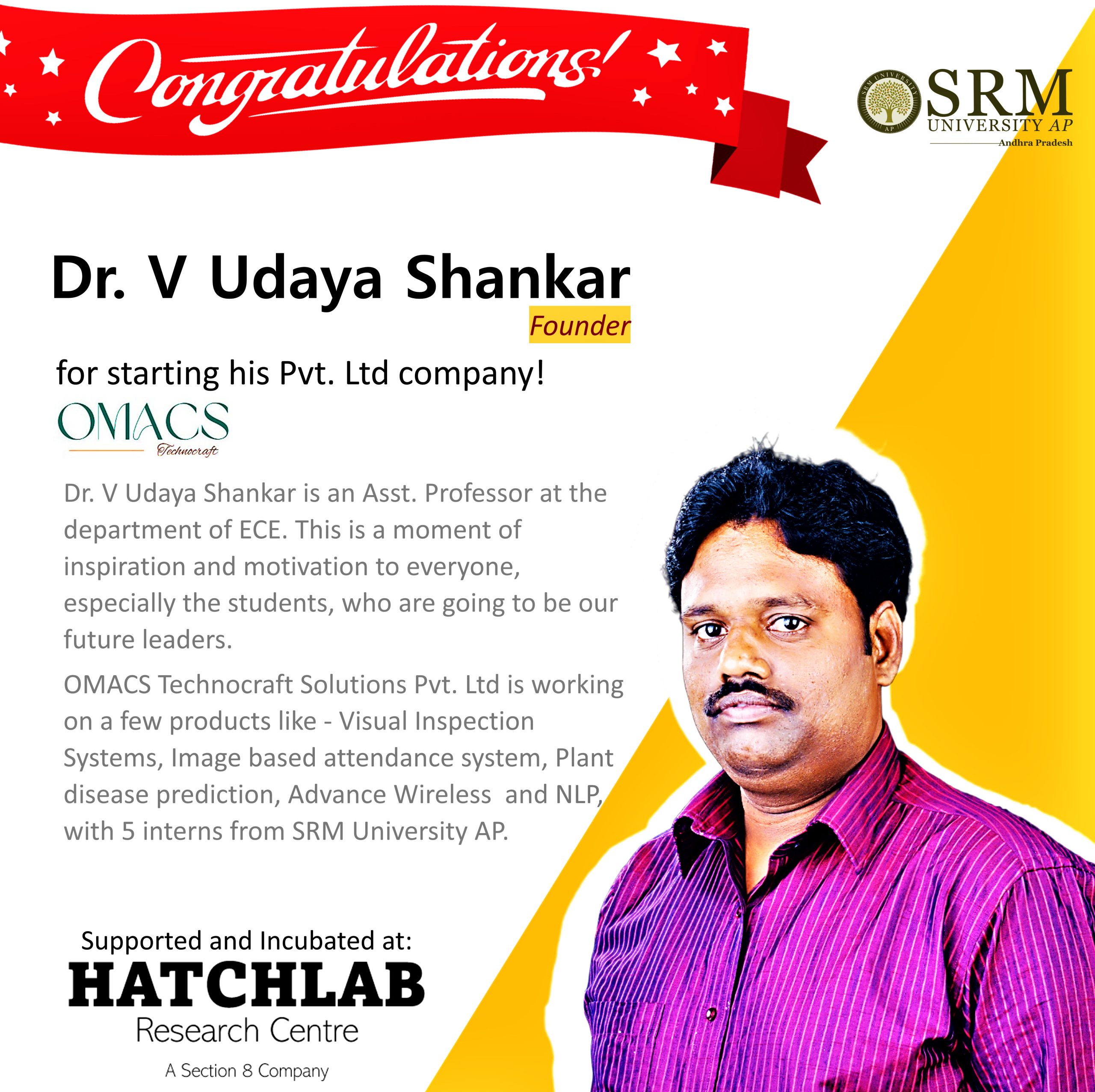 Start-ups are the centers of innovation. Ideas may seem easy, but their implementation is not. Dr Udaya Shankar from the Department of Electronics and Communication Engineering is ready to confront the challenges of innovation by registering his new start-up, OMACS.
Start-ups are the centers of innovation. Ideas may seem easy, but their implementation is not. Dr Udaya Shankar from the Department of Electronics and Communication Engineering is ready to confront the challenges of innovation by registering his new start-up, OMACS.OMACS envisions becoming the best research lab and product company within the next five years. The company’s motto is based on the 3P’s, that is, patents, papers, and product prototypes. The mission is to collaborate with world-class researchers experienced in both academy and industry. This will bring together the best advisors who have expertise in research and industry in the areas of AI and Game theory applications to Visual Inspection systems, 5G wireless communication networks, NFTs for Telecom, and Agriculture Robotics.
This company will be focused on developing products based on AI/ML-based visual inspection systems, Advanced wireless communications, NFTs for telecom, etc. Currently, five students from the university are interning with him and helping him develop the products.
Nine members are already being trained in the respected areas by enjoying their exposure to the industry environment. Four more interns are to be recruited for the ongoing projects. OMACS is in discussion with other start-up companies to offer research support to them. After six months of its implementation, the start-up plan to provide employment to some of the students in the university and recruit world-class people.
Mr Udayan Bakshi, Associate Director of Entrepreneurship, has helped him to initiate the start-up under the Hatchlab Incubation Centre of the university. “In every step of the journey of OMACS, we got all the support from Hatchlab. We are thankful to Hatchlab for their constant support and encouragement,” said Dr Udaya Shankar as he recollected the dynamics of Hatchlab and OMACS.
Click to visit the company website
Continue reading → - SRM University-AP organised Embassy Connect with 14 countries July 18, 2022
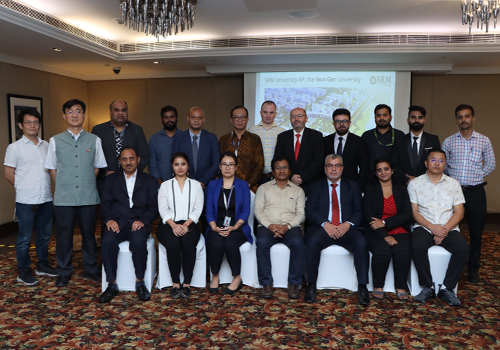 The office of International Relations and Higher Studies at SRM University-AP organised an Embassy Connect Programme, in which ambassadors, education attaches, cultural attaches of more than 14 countries and joint secretaries, and deputy secretaries of various regions from the Ministry of External Affairs participated.
The office of International Relations and Higher Studies at SRM University-AP organised an Embassy Connect Programme, in which ambassadors, education attaches, cultural attaches of more than 14 countries and joint secretaries, and deputy secretaries of various regions from the Ministry of External Affairs participated.Dr Naga Swetha Pasupuleti, Associate Director, Office of International Relations and Higher Studies at SRM University-AP, facilitated the Embassy Connect hosted in Delhi. The interaction aimed to build a bridge between the participating countries and India by promoting and providing high-quality higher educational programmes and opportunities to all sections and geographies.
Dy. Secretary for States from MEA – Mr Srinivas Reddy welcomed the gathering and emphasised the initiatives taken by the Government of India and how SRM University-AP can play a vital role in catering to global higher educational needs. Mr Aldrin Herwany, Education Attache from the Embassy of Indonesia, expressed keen interest in collaborating with SRM University- AP for exchange programmes, joint research and collaborations. While sharing some of his thoughts Mr Mahmoud A Ejweli, academic attache from the Embassy of Libya, said that India and Libya had always shared common interests almost since 1960 across several domains of Construction, Education and Health Care. He also added that India is the most sought destination for education.
Mr Sevala Naik, joint Secretary for West Africa, shared the steps and framework put in place to promote and extend quality education to African nations. He also mentioned that SRM University is one of the few institutions that have been approved by the grant commission of India to support and cater to the digital/virtual educational needs of African Countries, and already 400 plus students have been enrolled this semester from African regions into SRM University through this initiative. He also strongly emphasised that Indian education is one of the strongest, most economical and second to none of world-class institutions. He said India is bridging gaps between nations through one of the strongest pillars of education and knowledge transfer and applauded the contribution by SRM University-AP in this regard. Dr Naga Swetha shared the support and initiatives taken up, various scholarships being extended to African, SAARC and other nations by SRM University-AP, stressing on the vision of SRM University-AP’s management to cater world-class education to every aspiring and deserving student irrespective of class/creed/region.
Dr Naga Swetha emphasised and shared that SRM University-AP is home to a diverse, vibrant, and talented international student body. The office of International Relations and Higher Studies mete out effective services to the international student and scholar community. She also shared how the university is constantly thriving and becoming a global hub for opportunities, higher education, and entrepreneurship as it embarks on its 6th year of academic and research excellence.
The dignitaries from various embassies included Mr Elia Sevutia (Fiji), Mr Dolay Tshering (Bhutan), Mr Venkita Subramanian (Uzbekistan), Dr Om al Khair Abdullah Ahmed al Saaidi (Yemen), Mr Aldrin Herwany (Indonesia), Mr Sediqullah Sahar (Afghanistan), Ms Khadija Iman Einte (Somalia), Mr Mohammed A M Alghouwawi and Mr Mahmoud A Ejweli (Libya), Mr Roman Masarik (Czech Republic), Mr Eric Missah (Ghana), Mr Sevala Naik and Mr C Rajsekhar Reddy (Ministry of External Affairs, India), Vitali R. Moroz, third secretary, Embassy of Ukraine in the Republic of India, Roman Masarik, Charge d Affairs, Embassy of the Czech Republic In New Delhi, Dr Naga Swetha Pasupuleti, Associate Director – International Relations, SRM University-AP extended vote of thanks.
Continue reading →


